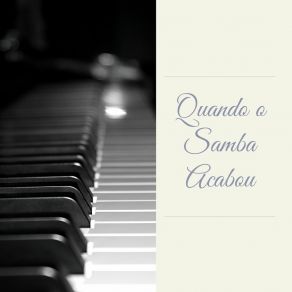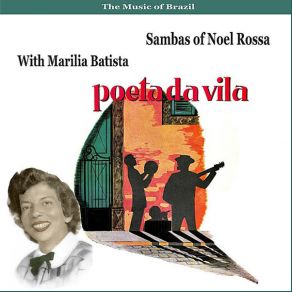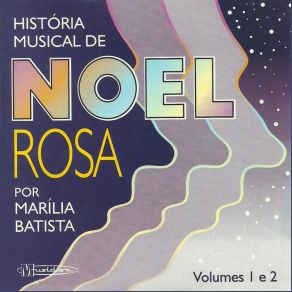Marília Batista / Marilia Batista
Wikimp3 information about the music of Marília Batista / Marilia Batista. On our website we have 3 albums of artist Marília Batista / Marilia Batista. You can find useful information and download songs of this artist. We also know that Marília Batista / Marilia Batista represents World Music genres.
Biography
[Edit]Considered by Noel Rosa to be the best interpreter of his songs (while other accounts regard renditions by Aracy de Almeida as Rosa's best), Marilia Batista was a successful singer/composer who recorded more than 30 albums in her career, several of them in duo with Rosa himself. She began to learn the violao (acoustic guitar) at age nine. Three years later (August 1930), she performed her originals and other songs with success at the Cassino Beira-Mar (Rio de Janeiro). Josue de Barros, who was present at the occasion, offered to teach her violao for free. It was followed by six months of classes with him; Batista would also study classical guitar with Jose Rebelo, along with theory and harmony at the National Institute of Music for five years. She met Noel Rosa in 1931 at the Gremio Onze de Junho, later discovering that he was already friends with her father, Renato Hutto Batista ("Provei" was dedicated to him). In Elisinha Coelho's home, she became acquainted with Almirante and the Bando de Tangaras (without Rosa), Hekel Tavares, Luis Peixoto, and others, impressing the experienced artists with her performance of, among others, "Preta Velha." In 1932, she recorded her first album through Victor, with the samba "Pedi, Implorei" and the marcha "Me Larga" (both by Batista and her brother, Henrique Batista). Invited by Almirante, she participated in the Broadway cocktail show at the Cinema Broadway with Ary Barroso, Silvio Caldas, Jorge Fernandes, Olinda Leite de Castro, and others. Enjoying crescent popularity and praised by critics, she was hired by Ademar Case for his Programa Case (Radio Philips). There she would meet Noel Rosa again. Becoming friends with him, she soon began to present his songs solo (with "Pela Decima Vez" as the first one), in duo with Rosa, or in trio with the addition of Henrique Batista, performing in virtually all radio stations throughout Rio. In 1936, she recorded "De Babado" with Rosa (by Noel Rosa/Joao Mina) and "Cem Mil-Reis" (Noel Rosa/Vadico). In the same year, Batista recorded "Quem Ri Melhor" (Noel), "Quantos Beijos" (Noel/Vadico), "Provei" (Noel/Vadico), and "Voce Vai Se Quiser" (Rosa), with Rosa always backed by Benedito Lacerda's regional. In 1938 she did her only international tour, to Uruguay, performing at several radio stations. She was elected the Princesinha do Samba and recorded "Silencio de Um Minuto" in 1940. From 1944 to 1945 she performed at the Cassino Atlantico for the biggest salary of the time. In 1950 she recorded the LP Samba e Outras Coisas, with the compositions written with her brother, Henrique Batista. After a period of scarce performances and recordings after her marriage in 1945, she returned to the artistic scene in 1962. In 1963, she recorded Historia Musical de Noel Rosa (Nilser-Musidisc), a double LP with 60 songs by Rosa.



